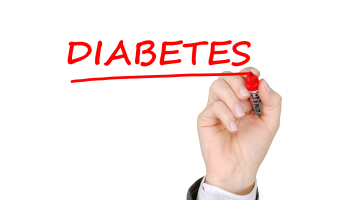Reading Time: 3 minutes
Within the past 40 years, fast food has become a welcomed part of the American culture as hectic lifestyles and growing responsibilities leave little time for home-cooked meals. While convenient and easily accessible, fast foods contain well-known, unhealthy ingredients that deliver minimal nutritional benefits. These ingredients just so happen to taste good making fast food all the more appealing to busy people.
After so many drive-through breakfasts, lunches and dinners, convenience and accessibility can soon turn into fast food cravings and eventual fast food addiction. Fast food addictions develop like any other type of addiction with positive reinforcements paving the way. Unfortunately, a regular diet of unhealthy foods poses definite dangers to a person’s health and overall quality of life.
Lifestyle Effects

Eating fast food on a regular basis can cause diabetes.
Open 24 hours a day, seven days a week, delivering large tasty food entrees within a fraction of the time it takes to cook at home, fast food restaurants have easily become a multi-billion dollar industry. Gone are the days when food was a source of sustenance and good health. Today, a fast food addiction can easily accommodate the average person’s hectic schedule while delivering little to no nutritional benefits.
Addictions are known for their effects on a person’s overall lifestyle with fast food addictions fitting the bill to a tee. Granted, the cart may have come before the horse in terms fast food meeting a need within today’s fast-paced society, the effects of fatty, sugary, salty foods create actual physical cravings not unlike those produced by drugs, nicotine and alcohol.
Children brought up inside a fast food culture are especially vulnerable to fast food addiction cravings. With addictive foods making up the bulk of a growing child’s diet, the likelihood of developing a fast food addiction by adulthood increases considerably. In effect, fast food lifestyles not only compromise a person’s present-day health but also the future health of developing children and teens.
Health Dangers
While fast food hasn’t officially entered the ranks of “junk food,” its effects on a person’s body and health are no less damaging than cupcakes, potato chips and candy. The chemical effects of salt, fat and sugar on the brain as well as the body become the driving force behind fast food addiction.
When eaten on a regular basis, fast food addictions can cause the following health problems:
- Fatigue
- High cholesterol levels
- Diabetes
- High blood pressure
- Liver problems
- Kidney problems
- Heart disease risks
- Impaired cognitive functioning
Obesity
According to Stony Brook University, rising obesity rates have become the number one public health concern of our time. Fast food addictions have played a central role in increasing the obesity rates in the United States. Obesity has been linked with a number of health conditions, such as diabetes and heart disease, many of which can be avoided with proper eating habits.
The combination of fast food addictions and the overall sedentary lifestyle that many people live create the perfect storm for an obesity epidemic to spread. As today’s children turn into tomorrow’s adults, obesity may easily become the norm as fast food addictions flourish.
